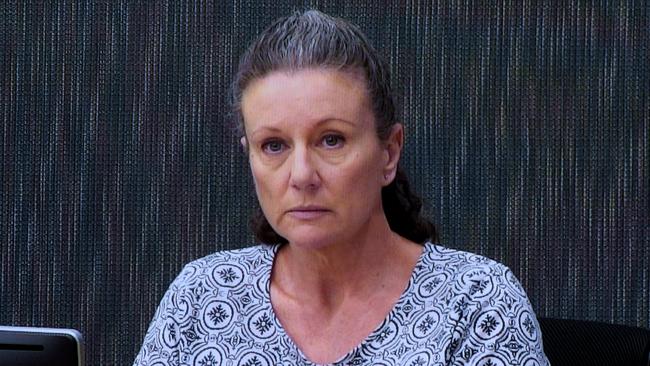Judges wrong on child killer Kathleen Folbigg, say scientists
Scientists who gave evidence at an inquiry into the conviction of Kathleen Folbigg for killing her four children have launched a stunning attack on the judges who rejected her appeal.

Scientists who gave evidence at an inquiry into the conviction of Kathleen Folbigg for killing her four children have launched a stunning attack on the NSW Court of Appeal judges who rejected her appeal on Wednesday.
The court rejected Folbigg’s claim that new scientific evidence showed a mutant gene carried by two of her children caused “a strong presumption” that they died from natural causes. The three appeal court judges found there was no “error of law” in the 2019 report by retired District Court judge Reginald Blanch who concluded there was no reasonable doubt to Folbigg’s conviction.
However, the Australian Academy of Science issued a statement on Wednesday night challenging the Court of Appeal’s judgment, claiming “there are medical and scientific explanations for the death of each of Kathleen Folbigg’s children”.
“The appeal reviewed the legal processes undertaken by the inquiry but did not consider an assessment of the scientific evidence available since the inquiry,” the academy said.
Academy president John Shine, who was among 90 scientists to sign a petition for a pardon for Folbigg, said it was “deeply concerning that there is not a mechanism to appropriately weigh up all medical and scientific evidence”. “There is now an alternative explanation for the death of the Folbigg children that does not rely on circumstantial evidence.”
Another signatory, former chief scientist Ian Chubb, said: “Expert advice should always be heard and listened to. It will always trump presumption.” Australian National University professor Carola Vinuesa, who gave crucial evidence at the 2019 inquiry, criticised the Court of Appeal for adopting Mr Blanch’s “incorrect conclusions about the genetics evidence”.
Folbigg was convicted in 2003 of smothering her four children — Caleb, Patrick, Sarah and Laura — over a 10-year period from 1989 to 1999. She was sentenced to a maximum 30 years’ jail with a non-parole period of 25 years.
Much of the evidence against her was based on entries in her diary that the jury was told amounted to confessions of guilt, something she denied.
The inquiry by Mr Blanch into her conviction was ordered after medical evidence raised doubt about her guilt, but the former judge found there was no natural explanation for the deaths.
New evidence that arose after the inquiry’s conclusion — of a genetic mutation known as CALM affecting Sarah and Laura that could impact on the normal function of a heart — was considered by Mr Blanch but found not to have changed the outcome.
On Wednesday, judges John Basten, Mark Leeming and Paul Brereton found “this was not a case in which [Mr Blanch’s] conclusion was at odds with the scientific evidence”.
“The scientific evidence raised a theoretical possibility that there were innocent explanations for the deaths of the two girls. However … their circumstances departed from the reported cases of deaths associated with CALM abnormalities.”
In particular, the judges said, the change in the Folbiggs’ genome was hereditary; the girls died at younger ages; the girls apparently died suddenly when asleep and not during exertion; there was an absence of prior symptomatology; and Folbigg did not have the cardiac manifestations commonly associated with it.
“The girls’ deaths were thus “outliers” when compared with those reported in the literature,” the appeal judges said.
“Further, the boys’ genomes provided no common cause.”



